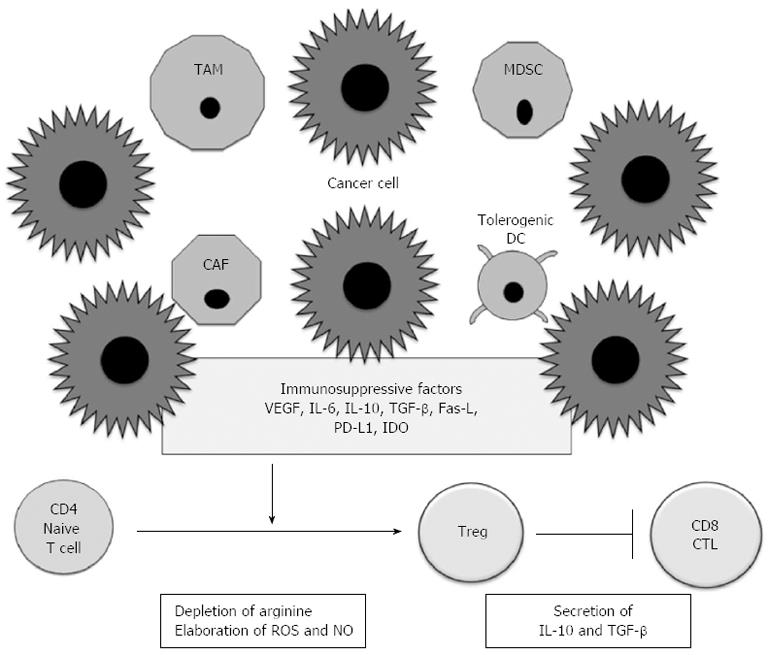Copyright
©2013 Baishideng Publishing Group Co.
World J Gastroenterol. Dec 14, 2013; 19(46): 8531-8542
Published online Dec 14, 2013. doi: 10.3748/wjg.v19.i46.8531
Published online Dec 14, 2013. doi: 10.3748/wjg.v19.i46.8531
Figure 1 Immunosuppression in the tumor microenvironment.
Cancer cells secrete various factors such as vascular endothelial growth factor (VEGF), interleukin (IL)-6, IL-10, transforming growth factor-β (TGF-β), Fas ligand (FasL), PD1 ligand 1 (PD-L1), and indolamine-2,3-dioxygenase (IDO), all of which promote the accumulation of heterogeneous populations of cancer-associated fibroblasts (CAFs), tumor-associated macrophages (TAMs), myeloid-derived suppressor cells (MDSCs), and tolerogenic dendritic cells (DCs). These immunosuppressive cells inhibit antitumor immunity by various mechanisms, including depletion of arginine and elaboration of reactive oxygen species (ROS) and nitric oxide (NO). The tumor microenvironment promotes the accumulation of Tregs that suppress CD8+ cytotoxic T lymphocyte (CTL) function through secretion of IL-10 and TGF-β.
- Citation: Koido S, Ohkusa T, Homma S, Namiki Y, Takakura K, Saito K, Ito Z, Kobayashi H, Kajihara M, Uchiyama K, Arihiro S, Arakawa H, Okamoto M, Gong J, Tajiri H. Immunotherapy for colorectal cancer. World J Gastroenterol 2013; 19(46): 8531-8542
- URL: https://www.wjgnet.com/1007-9327/full/v19/i46/8531.htm
- DOI: https://dx.doi.org/10.3748/wjg.v19.i46.8531









